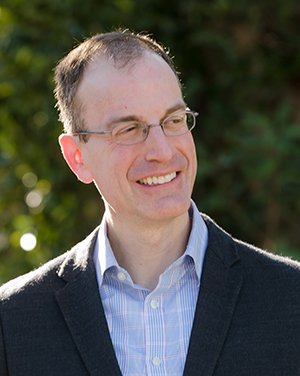Feb 20, 2026
If Caltech is hiring presidents for the long run, most colleges and universities should be hiring for the longer run. Because presidents who won’t be around to reap the rewards are less likely to take the requisite risks to fix a fading value proposition.
Feb 6, 2026
There’s a middle ground between pie-in-the-sky skills-based hiring and hiring revanchism. Employers can leverage technology to let candidates show what they can do, early, fairly, and at scale.
Jan 25, 2026
Allowing video to crowd out reading means trading dynamic scanning, selecting, and constructing for patience, credulity, and willingness to follow direction. It’s a poor bargain, particularly in the age of AI.
While affordability for everyone is a political problem, affordability for 20-somethings is an existential problem. And over the past few years, the question of how the average young American can afford to live independently has become a head-scratcher.
Dec 20, 2025
Higher education’s maximally inclusive approach to disability is resulting in a two-speed student population. It’s a short-term, short-sighted strategy that’s destabilizing an already shaky system.
Dec 6, 2025
Colleges have a vital interest in expanding the range of student-run businesses so students can accomplish something tangible as a team. That’s more powerful preparation for career launch than another class or two and a damn sight better than consulting and banking clubs.

Ryan is a Managing Director at Achieve Partners and was formerly an MD at University Ventures. Ryan’s commentary on where the puck is going in education and workforce regularly appears in the biweekly Gap Letter, Forbes, and Inside Higher Education. He is the author of the book Apprentice Nation: How the "Earn and Learn" Alternative to Higher Education Will Create a Stronger and Fairer America (2023). He is also author of A New U: Faster + Cheaper Alternatives to College (2018), which describes the critical importance of last-mile training and the emergence of bootcamps, income share programs, staffing and apprenticeship models as preferred pathways to good first digital jobs and was named in the Wall Street Journal as one the Books of the Year for 2018. Ryan’s first book was College Disrupted: The Great Unbundling of Higher Education (2015), which profiles the coming shift toward competency-based education and hiring. Ryan is a co-founder of Apprenticeships for America, a national nonprofit dedicated to scaling apprenticeships across the U.S. economy, a member of the Los Angeles County Workforce Development Board, and a senior fellow at the Progressive Policy Institute.
Previously, Ryan led the Education & Training sector at Warburg Pincus. His prior experience in higher education was at Columbia University. Ryan also founded and built Wellspring, a national network of boarding schools and summer camps for overweight and obese children, adolescents, and young adults. He began his career at McKinsey & Co.
Ryan received bachelor's degrees summa cum laude and Phi Beta Kappa from Yale University, and his law degree from the Yale Law School.
With millions of unfilled jobs, technology skill requirements advancing at a breakneck pace, tens of millions of workers out of position relative to what employers are seeking, and postsecondary education and workforce development systems that have largely refused to budge, we need unprecedented innovation in order to rekindle the American Dream of continued growth and shared opportunity. While traditional colleges and universities must play a leading role, the socioeconomic solutions we need won’t only come from higher education, but from a range of public, not-for-profit, and private actors, and via new pathways that may not be immediately recognizable as education or training.
The biweekly Gap Letter, successor to the UV Letter (2011-18), aspires to keep readers apprised of the latest ideas and developments in higher education and at the intersection of education and employment with a perspective that aims for candid and never boring. Thanks for your consideration.
- Ryan Craig